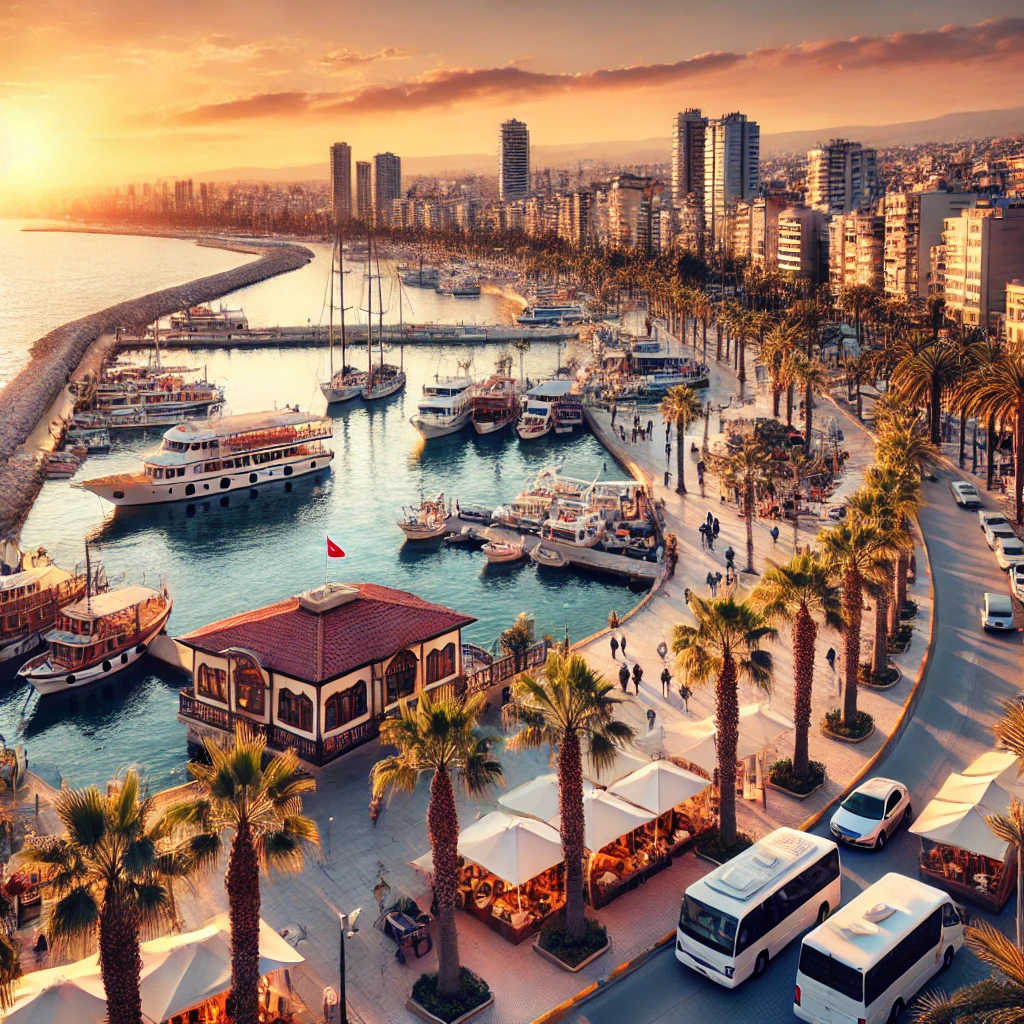Frequently Asked Questions (FAQs)
Find answers to the most common questions about traveling to Turkey, booking trips, and using VisitTurkey.in. Our comprehensive FAQs page is designed to provide you with all the information you need for a smooth and enjoyable travel experience.
Travel Tips help maximize your time and money spent in Europe and beyond. Topics include packing, planning, safety, tourist scams, transportation, money, sleeping, and much more. Here are some practical travel tips to help you make the most of your trip to Turkey.
Essential Travel Tips
Always Carry Your ID and Passport
Tourists should carry their ID and passport with them at all times for their own safety. This ensures you can identify yourself if needed and helps in case of emergencies.
Keep Some Turkish Lira
Even if a small amount of cash, it is advisable to keep some Turkish Lira with you. While credit cards are widely accepted, having cash on hand is useful for small purchases or in areas where cards are not accepted.
Use Travel Guides and Maps
Printed or digital travel guides and maps informing about the location you are visiting will help you get around and save valuable time so that you can focus on things worth seeing and doing.
Obtain a Museum Pass
Visitors who are planning to join culture tours in Istanbul, or Turkey in general, will be granted faster and cheaper admission to museums if they obtain a Museum Pass.
Use Online Check-In for Flights
Travelers who anticipate possible traffic congestion can use the online check-in system before arriving at the airport to avoid running the risk of missing their flight.
Take Advantage of Tax-Free Shopping
Tourists may benefit from tax-free shopping in Turkey by applying at the tax refund offices at the airports with their purchase receipts.
Purchase Prepaid SIM Cards
Tourists in Turkey may prefer to purchase prepaid SIM cards from the stores of local GSM operators to make cheap local and international calls and avoid any connection problems.
Wear Comfortable Clothes and Shoes
Wearing comfortable clothes and sports shoes will make you feel more comfortable if you are planning to participate in cultural tours during your stay in Turkey.
Use Public Transportation
Obtaining a public transportation card and making use of public transportation facilities is more practical and cheaper if you intend to spend your holiday in one of Turkey’s metropolitan areas.
Keep a Turkish Dictionary
It is advisable to keep a Turkish dictionary with you at all times. Finding people who speak foreign languages may not be possible at all times.
Rely on Local Hospitality
Turkish people are well known for their hospitality and friendliness. If you need help, you may ask the people around you; they will not turn you down.
You will need to activate the international roaming function. Contact your GSM operator to:
- Confirm that your phone will work in Turkey.
- Understand the costs associated with international roaming.
- Activate the international roaming service before you travel.
The ideal currency to bring to Turkey is the Turkish lira, as it’s the local currency. US dollars are also widely accepted and easily exchanged at banks and currency exchange offices. However, the most cost-effective way to pay in Turkey is by using a multi-currency travel debit card, which can help you avoid the fees associated with converting cash.
Turkey, a country rich in history and natural beauty, offers a variety of transportation options for both domestic and international travelers. Whether you’re planning to explore the bustling cities, historical sites, or serene coastal towns, Turkey’s extensive transport network can cater to all your travel needs. Here’s a detailed look at the various modes of transport available in Turkey.
Travel by Plane
Domestic Flights
Turkey’s vast size makes air travel a convenient option for covering long distances. Turkish Airlines and several other competent carriers, such as Onur Air, Atlasjet, Anadolu Jet, Pegasus Air, and Sun Express, offer frequent flights between major cities. Domestic flights are relatively inexpensive, with most fares ranging from TL89 to TL250 one-way. Major airports are well-connected, making air travel a time-efficient way to move around the country.
Major Airports and Codes
- Istanbul Airport (IST)
- Sabiha Gökçen Airport (SAW)
- Ankara Esenboğa Airport (ESB)
- Antalya Airport (AYT)
Travel by Bus
Modern Bus Network
Turkey boasts a robust network of modern, luxurious buses that connect cities and towns across the country. This mode of transport is particularly popular among locals. Although it might be challenging to find fare and schedule information online, it’s easy to obtain once you’re in Turkey. Bus departures are frequent, and advanced reservations are generally not necessary on most routes.
Sample Routes and Travel Times
- Istanbul to Ankara: Approximately 450 km (280 miles), 6-7 hours by bus.
- Istanbul to Izmir: Approximately 480 km (300 miles), 7-8 hours by bus.
- Istanbul to Antalya: Approximately 720 km (450 miles), 10-12 hours by bus.
Travel by Car
Car Rentals
For those who enjoy the freedom of movement and are comfortable driving, renting a car is an excellent option. However, it’s essential to note that most rental cars have a manual transmission (“stick shift”), not automatic. Renting a car allows you to explore off-the-beaten-path destinations at your own pace.
Driving Tips
- Drive on the right side of the road.
- Always carry your driver’s license, international driving permit, and vehicle registration documents.
- Be aware of local traffic rules and regulations.
Travel by Train
High-Speed Trains
Turkey is rapidly expanding its high-speed train network, aiming to connect 15 cities that hold half of the country’s population. These trains offer a fast, comfortable, and affordable way to travel between major cities. Notable routes include:
- Istanbul to Ankara: Approximately 4-5 hours.
- Ankara to Konya: Approximately 1.5 hours.
Conventional Trains
Conventional trains are also available and can be a more economical option. Although slower than buses, they offer more seating room and comfort.
Useful Resources
- TCDD Taşımacılık A.Ş.: The official site for Turkish State Railways, providing schedules and booking options.
Travel by Ship & Ferry
Cruise Ships
Cruise ships frequently dock at Turkish ports, including Istanbul and Kuşadası, providing easy access to popular destinations like Ephesus.
Sea of Marmara Ferryboats
Ferry services across the Sea of Marmara connect Istanbul with Yalova and Bandırma, offering a scenic and relaxing mode of travel.
Dardanelles Ferries
Ferries across the Dardanelles Strait link Europe and Asia, connecting key historical sites such as Çanakkale, Troy, and the Gallipoli battlefields.
Greek Islands—Turkey Ferries
Regular ferry services connect Greek islands with the Turkish coast. Check schedules and fares on Feribot.net.
Cyprus—Turkey Ferries
Ferries operate year-round between Girne (Kyrenia) in Northern Cyprus and Turkish ports like Taşucu/Silifke, with additional services to Alanya in the summer.
Tips for Traveling During Major Holidays
Travel can be particularly crowded during major Turkish holidays. It’s wise to plan and book your transportation in advance during these peak periods to ensure availability and avoid long waits.
Turkey, a country rich in history and natural beauty, offers a variety of transportation options for both domestic and international travelers. Whether you’re planning to explore the bustling cities, historical sites, or serene coastal towns, Turkey’s extensive transport network can cater to all your travel needs. Here’s a detailed look at the various modes of transport available in Turkey.
Travel by Plane
Domestic Flights
Turkey’s vast size makes air travel a convenient option for covering long distances. Turkish Airlines and several other competent carriers, such as Onur Air, Atlasjet, Anadolu Jet, Pegasus Air, and Sun Express, offer frequent flights between major cities. Domestic flights are relatively inexpensive, with most fares ranging from TL89 to TL250 one-way. Major airports are well-connected, making air travel a time-efficient way to move around the country.
Major Airports and Codes
- Istanbul Airport (IST)
- Sabiha Gökçen Airport (SAW)
- Ankara Esenboğa Airport (ESB)
- Antalya Airport (AYT)
Travel by Bus
Modern Bus Network
Turkey boasts a robust network of modern, luxurious buses that connect cities and towns across the country. This mode of transport is particularly popular among locals. Although it might be challenging to find fare and schedule information online, it’s easy to obtain once you’re in Turkey. Bus departures are frequent, and advanced reservations are generally not necessary on most routes.
Sample Routes and Travel Times
- Istanbul to Ankara: Approximately 450 km (280 miles), 6-7 hours by bus.
- Istanbul to Izmir: Approximately 480 km (300 miles), 7-8 hours by bus.
- Istanbul to Antalya: Approximately 720 km (450 miles), 10-12 hours by bus.
Travel by Car
Car Rentals
For those who enjoy the freedom of movement and are comfortable driving, renting a car is an excellent option. However, it’s essential to note that most rental cars have a manual transmission (“stick shift”), not automatic. Renting a car allows you to explore off-the-beaten-path destinations at your own pace.
Driving Tips
- Drive on the right side of the road.
- Always carry your driver’s license, international driving permit, and vehicle registration documents.
- Be aware of local traffic rules and regulations.
Travel by Train
High-Speed Trains
Turkey is rapidly expanding its high-speed train network, aiming to connect 15 cities that hold half of the country’s population. These trains offer a fast, comfortable, and affordable way to travel between major cities. Notable routes include:
- Istanbul to Ankara: Approximately 4-5 hours.
- Ankara to Konya: Approximately 1.5 hours.
Conventional Trains
Conventional trains are also available and can be a more economical option. Although slower than buses, they offer more seating room and comfort.
Useful Resources
- TCDD Taşımacılık A.Ş.: The official site for Turkish State Railways, providing schedules and booking options.
Travel by Ship & Ferry
Cruise Ships
Cruise ships frequently dock at Turkish ports, including Istanbul and Kuşadası, providing easy access to popular destinations like Ephesus.
Sea of Marmara Ferryboats
Ferry services across the Sea of Marmara connect Istanbul with Yalova and Bandırma, offering a scenic and relaxing mode of travel.
Dardanelles Ferries
Ferries across the Dardanelles Strait link Europe and Asia, connecting key historical sites such as Çanakkale, Troy, and the Gallipoli battlefields.
Greek Islands—Turkey Ferries
Regular ferry services connect Greek islands with the Turkish coast. Check schedules and fares on Feribot.net.
Cyprus—Turkey Ferries
Ferries operate year-round between Girne (Kyrenia) in Northern Cyprus and Turkish ports like Taşucu/Silifke, with additional services to Alanya in the summer.
Tips for Traveling During Major Holidays
Travel can be particularly crowded during major Turkish holidays. It’s wise to plan and book your transportation in advance during these peak periods to ensure availability and avoid long waits.
When traveling to Turkey, it’s essential to familiarize yourself with the local currency to ensure a smooth and hassle-free experience. Here is a comprehensive guide to the Turkish Lira and tips on handling money during your stay.
The Turkish Lira: Overview
Official Currency
The official currency of the Republic of Turkey is the Turkish Lira, abbreviated as TL. The Turkish Lira is divided into subunits called kuruş.
Currency Denominations
- Paper Currency: Comes in 5, 10, 20, 50, 100, and 200 TL notes.
- Metal Currency: Available in 5, 10, 25, and 50 kuruş coins, and 1 Lira coins.
Design Features
- Front Face: Images of Mustafa Kemal Ataturk, the founding father of the Turkish Republic, adorn the front face of all money notes.
- Back Side: The reverse side of the notes features prominent names and places from Turkish culture.
Exchanging Currency
Conversion
Currencies of foreign countries can be converted into Turkish Lira at exchange offices and banks. The daily exchange rate is determined by the Turkish Central Bank.
Widely Accepted Currencies
Apart from Turkish Lira, strong currencies such as the U.S. Dollar and Euro are widely accepted by large shopping centers, hotels, and restaurants. However, it is advisable to carry some Turkish Lira with you at all times for your convenience, especially in smaller towns and rural areas.
Tips for Handling Money in Turkey
- Carry Turkish Lira: Always have some Turkish Lira on hand for small purchases and in areas where foreign currencies are not accepted.
- ATMs and Credit Cards: ATMs are widely available and allow withdrawals in Turkish Lira. Credit and debit cards are accepted in most places, but having cash can be handy.
- Exchange Rates: Check the current exchange rates and compare options at different exchange offices and banks to get the best rate.
The minimum wage in Turkey for 2024 has been a significant topic of discussion as the country continues to navigate economic challenges. Understanding the changes in the minimum wage is crucial for both employers and employees. In 2024, the net minimum wage in Turkey is set at 17,002.12 TL, with the gross wage being 20,002.50 TL. This increase reflects the ongoing adjustments to support the workforce amidst rising living costs. In this article, we will delve into the details of the 2024 minimum wage in Turkey, its impact on the economy, and how it compares to previous years.
Minimum Wage in Turkey for 2024
Significant Increase in 2024 Minimum Wage
The minimum wage in Turkey for 2024 has seen a substantial increase compared to previous years. The net wage is set at 17,002.12 TL, while the gross wage stands at 20,002.50 TL. This marks a significant rise from the second half of 2023, where the net wage was 11,402.32 TL and the gross wage was 13,414.50 TL. The increase aims to help workers cope with the rising costs of living in the country.
Comparison to Previous Years
To understand the significance of the 2024 minimum wage, it is essential to compare it with the figures from the past few years. In the first half of 2023, the net minimum wage was 8,506.80 TL, with a gross wage of 10,008 TL. Looking further back, the second half of 2022 saw a net wage of 5,500.35 TL and a gross wage of 6,471 TL. The consistent increases over the years highlight the government’s efforts to adjust wages in line with inflation and economic demands.
Average Salary in Turkey for 2024
Overview of Average Salaries
In 2024, the average salary in Turkey has also seen adjustments in response to economic conditions. As of August 2024, the average salary for a worker in the country is approximately 23,000 TL. This figure can vary significantly depending on factors such as industry, experience, and job role.
Worker Salaries in 2024
Focusing on worker salaries, the average monthly wage for a worker in 2024 is around 25,784 TL. This represents a substantial increase from the previous year, where the average worker salary in 2023 was 16,428 TL. The rise in wages reflects the broader economic trends and the need to support workers in the face of increasing expenses.
Impact of Minimum Wage Increase on the Economy
Economic Implications
The increase in the minimum wage for 2024 is expected to have several economic implications. On the one hand, higher wages can boost consumer spending, which is vital for economic growth. On the other hand, businesses may face increased operational costs, leading to potential price adjustments or hiring freezes. The balance between supporting workers and maintaining business sustainability will be crucial in the coming year.
Government Policies and Support
The Turkish government has been proactive in adjusting the minimum wage to align with inflation and economic needs. This ongoing effort to increase wages aims to improve the standard of living for workers while also stimulating the economy. However, it also requires careful management of fiscal policies to avoid adverse effects on businesses and employment rates.
Conclusion
The minimum wage in Turkey for 2024 has been significantly increased to 17,002.12 TL net and 20,002.50 TL gross. This rise reflects the ongoing economic adjustments and the government’s commitment to supporting the workforce. With the average salary also seeing an increase, the overall impact on the economy remains a critical area to monitor. As Turkey continues to navigate its economic challenges, these wage adjustments play a vital role in shaping the country’s financial landscape.
The most visited city in Turkey in 2024 is Istanbul. As one of the world’s top tourist destinations, Istanbul continues to attract millions of visitors each year. In the first four months of 2024 alone—January, February, March, and April—Istanbul welcomed a total of 5,244,936 foreign visitors, according to the Turkish Ministry of Culture and Tourism. This underscores the city’s enduring appeal as a cultural and historical hub.
Mersin, with its charming towns of Erdemli and Silifke, is often celebrated as one of Turkey’s most beautiful cities. Known for its breathtaking Mediterranean coastline, Mersin offers a mix of pristine beaches perfect for relaxation, swimming, and sunbathing. Beyond its unspoiled natural beauty, Mersin also boasts numerous beach resorts with top-notch facilities and a variety of water sports, making it a top destination for beach lovers and vacationers alike.
If you’re planning a trip to Turkey, staying connected with your mobile phone is essential. Here’s what you need to know about using your mobile phone in Turkey:
International GSM Coverage
Many international GSM operators provide coverage in Turkey, ensuring that you can use your mobile phone seamlessly. Before you travel, it’s a good idea to check with your mobile carrier about international roaming services.
Popular Local GSM Operators:
- Turkcell
- Avea
- Vodafone
Activating International Roaming
To use your current mobile phone number and plan in Turkey, you will need to activate the international roaming function. Contact your GSM operator to:
- Confirm that your phone will work in Turkey.
- Understand the costs associated with international roaming.
- Activate the international roaming service before you travel.
Obtaining a Local SIM Card
Alternatively, you can obtain a local SIM card upon arrival in Turkey. This option can be more cost-effective and provide better local rates for calls, texts, and data. Here’s how you can get started:
How to Get a Local SIM Card:
- Visit a Store: You can purchase a SIM card from official stores of Turkcell, Avea, or Vodafone. These stores are commonly found in airports, shopping malls, and city centers.
- Provide Identification: Be prepared to show your passport or another form of ID when purchasing a SIM card.
- Choose a Plan: Select a prepaid plan that suits your needs for calls, texts, and data.
Benefits of Using a Local SIM Card
- Cost Savings: Avoid high international roaming fees by using local rates.
- Local Number: Having a local Turkish phone number can be convenient for making reservations and contacting local services.
- Better Coverage: Local SIM cards often provide better network coverage and data speeds within Turkey.
Discover the best of travel Turkey. Explore top tourism spots, rich cultural heritage, and vibrant cities. From ancient ruins to stunning beaches, find tips on the best destinations, hotels, flights, and tours to make your Turkish adventure unforgettable. Dive into the wonders of tourism in Turkey and plan your perfect trip today!
Top Destinations in Turkey
Explore Turkey’s top destinations, from Istanbul’s vibrant streets to Cappadocia’s unique landscapes and Antalya’s beaches.
Afyonkarahisar
Afyonkarahisar, often simply called Afyon, is a captivating city nestled [...]
Afyon Castle, Afyonkarahisar, agriculture, archaeological museum, cuisine, history, landmarks, marble, opium, pharmaceuticals, thermal springs, transportation, Turkey, Turkish delight, Victory Museum
Aydın
Aydın, Turkey, often overshadowed by its more famous neighbors, is [...]
Aegean coast, Aegean region, ancient city of Tralles, ancient ruins, Aphrodisias, Aydın, Aydın Archaeological Museum, Aydın attractions, Aydın International Music Festival, Çöp Şiş, culture, Didim, Germencik, hidden gem, historical sites, İzmir Adnan Menderes Airport, Kabak Tatlısı, Nysa Ancient City, Şirince village, Sultanhisar, Temple of Apollo, thermal springs, things to do in Aydın, tourism, traditional Turkish bazaars, travel, Turkey, Zeytinyağlı dishes
Yalova
Nestled along the eastern coast of the Sea of Marmara, [...]
Atatürk Arboretum, culture, hidden gem, historical sites, Marmara Sea ferry, nature, Sea of Marmara, Sudüşen Waterfall, Termal hot springs, thermal springs, things to do in Yalova, tourism, travel, Turkey, Turkey travel, Turkish spa resorts, visit Yalova, Yalova, Yalova accommodations, Yalova attractions, Yalova climate, Yalova dining, Yalova history, Yürüyen Köşk
Siirt
Siirt, a city located in southeastern Turkey, is a blend [...]
ancient city Siirt, Ottoman Siirt, Siirt, Siirt archaeological sites, Siirt culture, Siirt education, Siirt festivals, Siirt history, Siirt landscapes, Siirt local cuisine, Siirt museums, Siirt natural beauty, Siirt tourism, Siirt transport, Siirt travel guide, Siirt Turkey, travel Siirt, visit Siirt
Batman
Welcome to Batman, a city that holds a unique charm [...]
ancient Caria, Batman, Batman Airport, Batman province, Batman University, cultural heritage, festivals, Hasankeyf, historical ruins, Kurdish culture, Mediterranean climate, Menteşe dynasty, oil industry, scenic views, Tigris River, tourism, transportation, travel destination, Turkey, Zeynel Bey Mausoleum
Bursa
Bursa, Turkey, is a city steeped in history, culture, and [...]
Botanical Garden, Bursa, Bursa attractions, Bursa City Museum, Bursa International Festival, Bursa Yenişehir Airport, Bursa’s thermal baths, Cantık, Çekirge district, cultural heritage, culture, Cumalıkızık Village, first capital of the Ottoman Empire, Great Mosque, Green Mosque, Green Tomb, hidden gem, historical landmarks, historical sites, İskender Kebab, İznik, Kemalpaşa dessert, Koza Han, Mudanya, Muradiye Complex, nature lovers, Ottoman heritage, Ottoman-era architecture, outdoor activities, thermal baths, thermal springs, things to do in Bursa, tourism, travel, Turkey, Turkish cuisine, Ulu Cami, Uludağ, Uludağ National Park, vibrant cultural scene
Kastamonu
Kastamonu: Nestled in the northern region of Turkey, Kastamonu, historically [...]
Atatürk, Central Anatolia, Dress Code Revolution, Kastamonu, Kastamonu architecture, Kastamonu attractions, Kastamonu climate, Kastamonu cuisine, Kastamonu educational institutions, Kastamonu history, Kastamonu travel, Kastamonu University, kuyu kebabı, Ottoman houses, Paphlagonia, Sheikh Shaban Veli, Turkey, Turkish cities
Rize
Rize, a picturesque city located on the northeastern coast of [...]
Ayder Plateau, Ayder Snow Festival, Ayder spa resorts, best time to visit Rize, Black Sea, culture, Fırtına River rafting, hidden gem, historical sites, Kaçkar Mountains, paragliding Black Sea, Rize, Rize accommodation, Rize attractions, Rize baskets, Rize Castle, Rize cuisine, Rize souvenirs, Rize Tea Festival, Rize thermal springs, tea plantations, things to do in Rize, tourism, Trabzon airport, travel, Turkey, Turkish Black Sea coast, Zilkale
Muğla
Muğla is a breathtaking destination located on Turkey’s southwestern coast, [...]
Aegean coast, Bafa Lake, beaches, best time to visit, Bodrum Beaches, Bodrum Castle, Butterfly Valley, craft villages, culture, Dalyan River, Dalyan Rock Tombs, Ephesus, Gökova Bay, hidden gem, hiking, historical sites, Iztuzu Beach, Kaunos, Knidos, local markets, Marmaris beaches, Muğla, Muğla attractions, Ölüdeniz Beach, paragliding, Patara Beach, safety tips, sailing, Saklıkent Gorge, scuba diving, things to do in Muğla, tourism, traditional Turkish cuisine, transportation in Muğla, travel, trekking, Turkey, Turkish baths, Turkish Lira, water sports, yachting
Elazığ
Nestled in the Eastern Anatolia region of Turkey, Elazığ is [...]
Armenian heritage, Buzbağ wine, culture, Eastern Anatolia, Elazığ, Elazığ Airport, Elazığ attractions, Elazığ cuisine, Elazığ culture, Elazığ festivals, Elazığ food, Elazığ history, Elazığ landmarks, Elazığ museums, Elazığ natural beauty, Elazığ sightseeing, Elazığ sports, Elazığ tourism, Elazığ transportation, Elazığ urban development, Elazığ vineyards, Euphrates Valley, Fırat University, Harput, Harput architecture, Harput Castle, Harput ruins, Harput Ulu Camii, hidden gem, historical sites, Karakaya Dam, Keban Dam, Kıralkızı Dam, Lake Hazar, modern Elazığ, Ottoman history, Özlüce Dam, things to do in Elazığ, tourism, travel, Turkey, Turkish cities
Mersin
Mersin, a bustling port city on Turkey’s Mediterranean coast, is [...]
Adana Şakirpaşa Airport, beaches, Ciğer kebap, culture, day trips, Forum Mersin, Heaven and Hell Sinkholes, hidden gem, historical sites, local bazaars, Mamure Castle, Mediterranean coast, Mersin, Mersin Archaeological Museum, Mersin attractions, Mersin HiltonSA, Mersin International Music Festival, Mersin Marina, Mersin State Opera and Ballet, Soli/Pompeipolis, Tantuni, Tarsus, things to do in Mersin, tourism, travel, Turkey, Yumuktepe Mound
Van
Nestled on the eastern shore of Lake Van, the city [...]
Akdamar Island, Armenian Kingdom of Vaspurakan, culture, Eastern Turkey, hidden gem, historical sites, Hoşap Castle, Kurdish culture, Lake Van, Muradiye Waterfall, nature, things to do in Van, tourism, travel, travel to Van, Turkey, Turkish cuisine, Urartu Kingdom, Van, Van accommodations, Van attractions, Van Castle, Van festivals, Van history, Van Kahvaltısı, Van Museum, Van tourism












